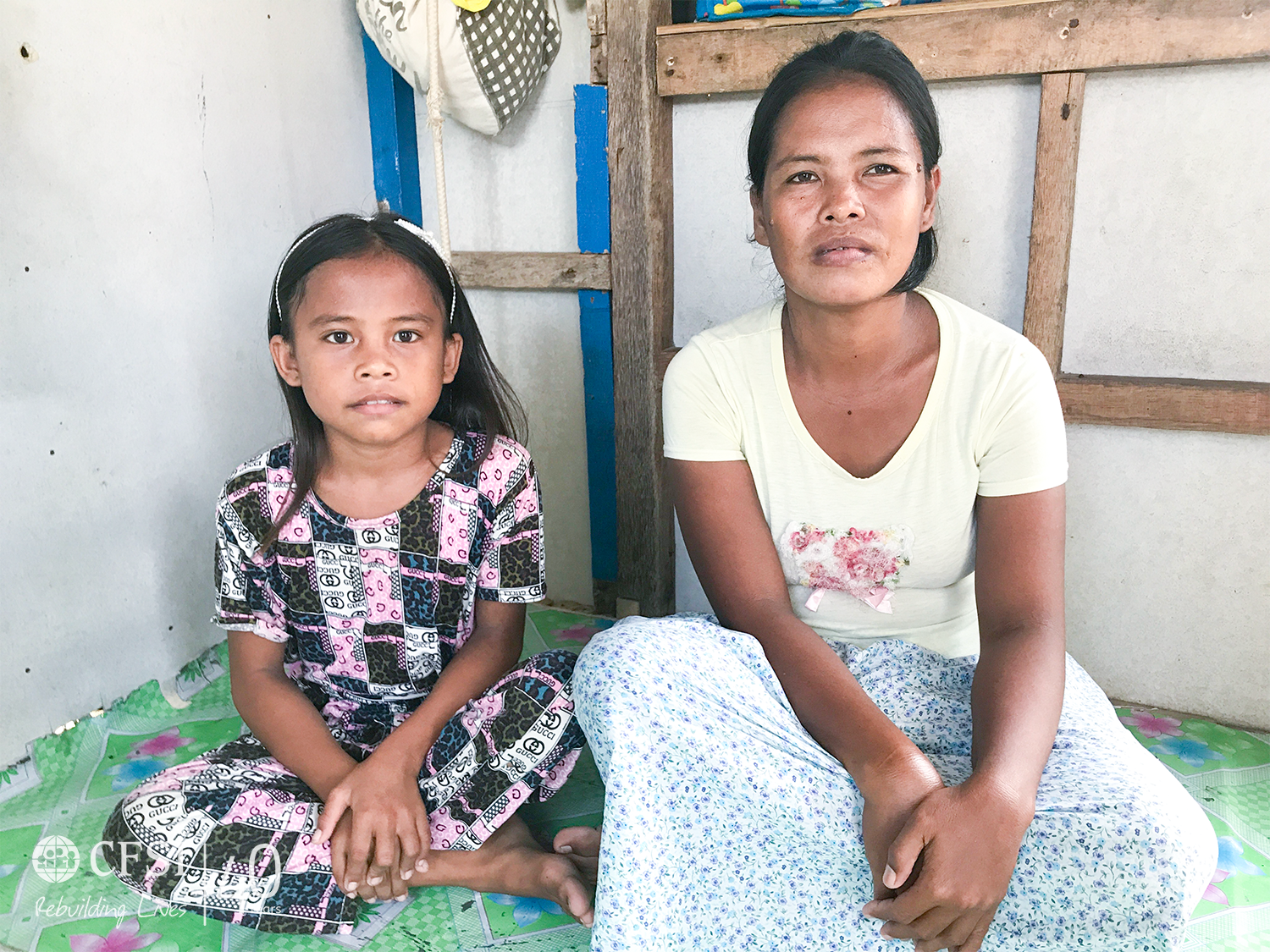Women, particularly mothers and girls, are the most affected by the global crisis of pandemic that caused community lockdowns, job loss, and change in the educational system.
Stay-at-home mothers who previously engaged in on-call jobs have lost the opportunity to work, and now struggle to teach their children through modular learning. This new set-up has affected them psychologically and physically.
Nadzma Salapuddin, a 31-year-old mother of four, is among those who feel difficulty in adapting to the changes. No one can teach her children at home as she only reached Grade 4 while Sali, her husband, has had no formal education at all.
“Also, we have no cellphone to communicate about the schedules of distribution and submission of modules to school,” she added.
On top of these challenges, Nadzma carries the scars of discrimination as a member of Sama Bajau, an Indigenous Group mostly living in Zamboanga City, Philippines. She feels intimidated talking to teachers and other people, which makes the new school setup harder for her.
Nadzma’s family is among the 87 Sama Bajau families in Zamboanga City assisted by Community and Family Services International (CFSI) through the Sama Bajau Education Support Project Phase Two (SBESP/2). The project, with funding support from Educo, aims to help students and their families adapt to the distance learning mode amidst the pandemic.
CFSI mobilized volunteers in the community to conduct house-to-house tutoring sessions for the student beneficiaries of the project. Nadzma’s daughter, Nursima, is among the students who benefit from the tutoring sessions. She is in Grade 3.
“I am really happy that my child gets to be part of the tutoring sessions of CFSI. It makes me confident and at peace knowing that she’s learning, finishing her modules, and having the chance to proceed to the next grade level. She’s not just out on the streets playing all day long,” Nadzma shared.
Nadzma is also thankful for the school supplies provided to Nursima. It’s a big help for them since the livelihood of his husband Sali as a karo-boy (porter) in the public market was gravely affected due to the pandemic. Daily, Sali earns Php250 (USD5.01) at most and is only enough for their basic needs. They barely have anything left for the school supplies of their children.
“As you know, life is really hard for us meager earners to even afford a single pencil or pad paper,” she added.

Nadzma Salapuddin (right) with her daughter Nursima, who is in Grade 3 and a beneficiary of the Sama Bajau Education Support Project Phase Two (SBESP/2) in Zamboanga City, Philippines.
Nadzma recounted that her family acquired birth certificates through the previous projects of CFSI. They have been beneficiaries of CFSI since the aftermath of the armed conflict in Zamboanga City in 2013, known as the Zamboanga Siege.
“My brother used to be a volunteer of CFSI back when the families affected by the siege were in transitory sites. We were there and CFSI assisted us to acquire birth certificates. Sama Bajaus almost always do not register their children’s birth that’s why it’s helpful for us,” she shared.
Nadzma added, “Having a birth certificate ensures that my children can be enrolled in school without any problem and that my children will grow up with identities of their own.”
Currently, Nadzma is living beside the house of her brother, where they built a small extension for her family to live in. This is where they continue to build on their dreams and aspirations.
Nursima wishes to be a doctor one day. She wants to cure people for free, especially those from the Sama Bajau communities.
Knowing this, Nadzma is motivated to help Nursima reach for her dreams.
“I will work extra so my children can access education unlike us. I want them to learn how to read and write, and to finish their education so they can reach places – anywhere they want, without other people discriminating them,” she said.
Like Nursima, many children remain in need of help to access education, especially in this time of pandemic. Parents feel the struggle too, but the love and support to each other, like of Nadzma’s family, could surpass challenges to reach a better future. #

